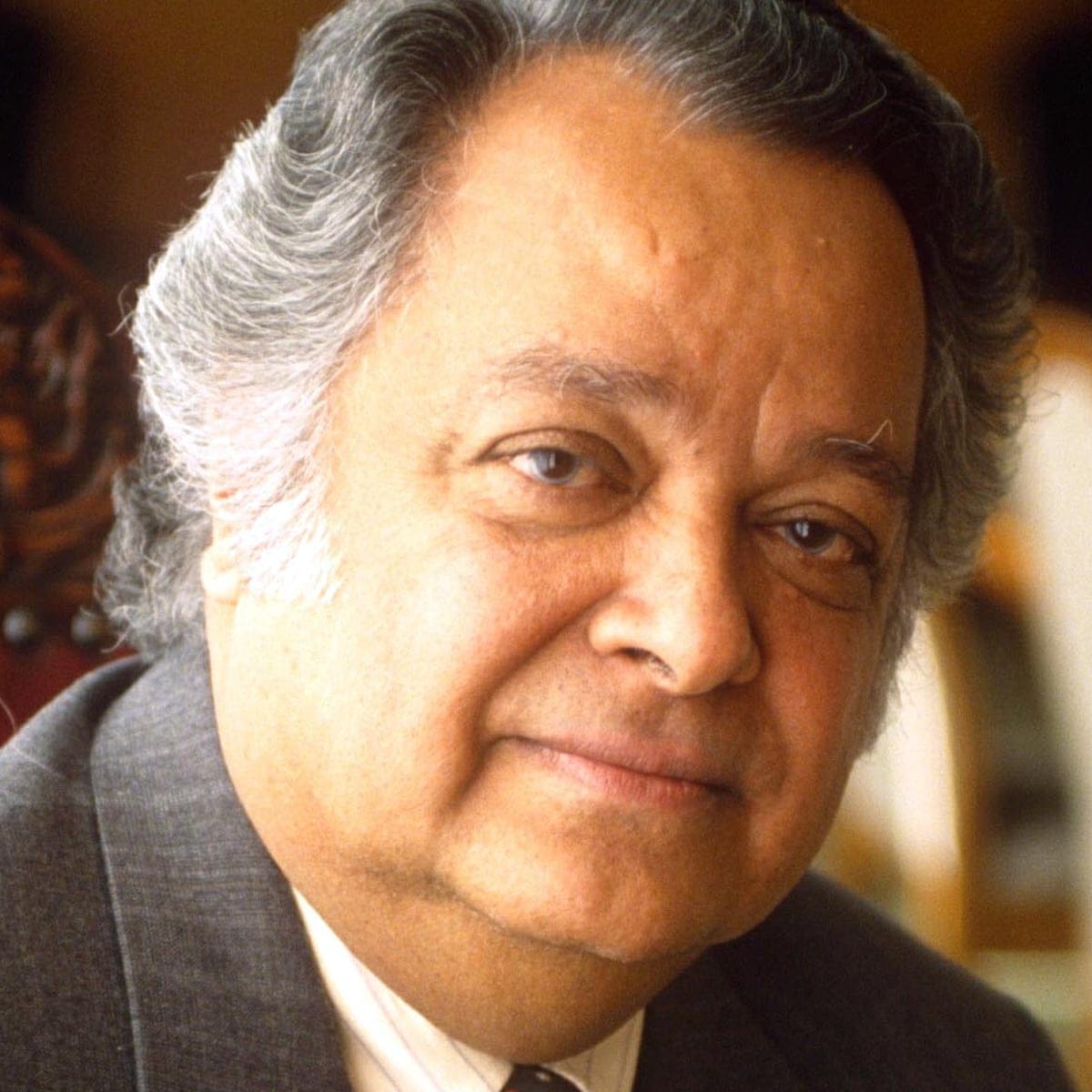Chief Emeka Anyaoku, Africa’s first Commonwealth Secretary-General (1990-2000) has praised his late predecessor Sir Shridath ‘Sonny’ Ramphal of Guyana for championing “the universal recognition of the Commonwealth as an organization with a capacity to operate globally in the service of the wider international community.”
“It was he who gave practical meaning to the maxim: ‘while the Commonwealth cannot negotiate for the world, it can help the world to negotiate, as has been the case since the 1992 Rio Summit on Environment and Development and the subsequent United Nations conferences on climate change,” Anyaoku said, in a tribute during a memorial service in honour of the Guyanese diplomat on Tuesday, 1st July 2025 at the historic Queen’s Chapel, London.
Born in New Amsterdam, British Guiana (now Guyana), the Guyanese former Justice and Foreign Minister, served as the second Commonwealth Secretary-General 1975-1990. He died in August 2024 at age 95.
Anyaoku, a Nigerian elder statesman said: “Sonny Ramphal will also be remembered as a great advocate of the efforts by the developing countries of the South to persuade the richer developed countries of the North to contribute more effectively to the development of the countries of the South,” adding: “It was in this respect that he played a prominent role in the Brandt Commission that was set up in 1977 on international development issues chaired by the former Chancellor of Germany, Willy Brandt.”
Continuing, he described Sonny Ramphal “as a man with great oratorical skills and word-craft; a remarkable Foreign Minister of his native Guyana and a great player in the affairs of his Caribbean region; a global diplomat who rendered enduring service to the Commonwealth; indeed, an icon of the modern Commonwealth.”
Attendees at the service included the representative of HM King Charles III, the British Foreign Secretary, a number of Commonwealth High Commissioners and representatives of Commonwealth organizations
Anyaoku recalled how he first met Sonny Ramphal in August 1972 at the meeting of the Foreign Ministers of the Non-Aligned countries in Georgetown, Guyana, which he hosted and Chaired.
“The first Commonwealth Secretary-General, Arnold Smith, had sent me then Director of the Commonwealth Secretariat’s Political Affairs Division as an Observer to the meeting,” Anyaoku said, noting: “Sonny’s brilliance in conducting the meeting and his personal bonhomie made a lasting impression on me, and on a number of Foreign Ministers with whom I talked during the meeting.”
Their next encounter was in the following year at the Ottawa Commonwealth Heads of Government meeting (CHOGM) and as a Conference Secretary of the meeting, Anyaoku said the topics of informal discussions in the corridors was the likely successor to the first Commonwealth Secretary-General, to be chosen at the next CHOGM in Kingston Jamaica.
“From my conversations with several Foreign Ministers, it was clear to me that Sonny Ramphal was the front runner,” and “…(he) was easily unanimously elected by the Heads of Government as the second Commonwealth Secretary-General,” Anyaoku disclosed, adding: “I worked closely with him in Marlborough House, first as Assistant Commonwealth Secretary-General from 1975 to 1977, and later as Deputy Commonwealth Secretary General in charge of political affairs and administration from 1978 to 1990, except during the five months when I was invited home in 1983 to serve as Nigeria’s Foreign Minister.”
Recalling the threats posed to the Commonwealth then by the political crises in the then Southern Rhodesia (now Zimbabwe) and the racist apartheid regime in South Africa, Anyaoku said: “It was Secretary-General Sonny Ramphal who, with the potent influence of the late Head of the Commonwealth HM Queen Elizabeth II at the CHOGM in Lusaka, Zambia in August 1979 succeeded in defusing the threat.”

File photo: Queen Elizabeth II with (L-R) former Commonwealth Secretaries-General Emeka Anyaoku, Don McKinnon and Shridath Ramphal.
“He did this by getting the Heads of Government to adopt the seminal Lusaka Declaration on Racism and Racial Prejudice, and more importantly, by getting them to reach the agreement which led to the convening of the Lancaster House Conference that resolved the situation in Rhodesia and settled the constitution of the resultant Independent Republic of Zimbabwe,” said Anyaoku.
According to him, “Earlier in 1977, at the CHOGM in Gleneagles, Sonny Ramphal had got the Heads of Government to adopt the Gleneagles Agreement that regulated Commonwealth sports sanctions against apartheid South Africa. The sanctions remained in place until 1991 when as Sonny’s successor in office, I led the Commonwealth intervention that effectively helped the Government of President F.W. de Clerk and the leaders of the other political parties, in South Africa’s transition from apartheid to a democratic government in May 1994 with Nelson Mandela as the President of the Republic of South Africa.”
“The first Commonwealth Secretary-General, Arnold Smith, is rightly credited with consolidating the evolution of the British Commonwealth into the Commonwealth of sovereign independent nations as envisaged in the London Declaration of 1949, and also with the beginning of the formal articulation of the fundamental principles of the Commonwealth with the Singapore Declaration of 1971, which was followed by the Harare Declaration of 1991 and culminated in the Commonwealth Charter signed by The Queen in 2013,” Anyaoku noted.
The Commonwealth of Nations is an association of 56 sovereign states and territories, most of them former British colonies now with an estimated combined population of 2.6 billion, almost a third of the world’s population, with 2.1 billion living in India, and 95% in Africa and Asia combined.
Francophone African nations of Gabon and Togo have joined the Commonwealth along with Mozambique and Rwanda, all of which had no prior historical relationship with the United Kingdom.
This makes the Commonwealth a mosaic union of diverse people, cultures, traditions, and religions from the smallest and developing, to some of the most developed countries of the world.
Earlier this year, the two-day 2025 Commonwealth Trade Ministers Meeting (CTMM) in Windhoek, Namibia, pledged to boost intra-Commonwealth trade to US$2 trillion by 2030.
Formed in 1926 by the so-called original Dominions, the Commonwealth has since transformed into a modern organization tackling emerging challenges confronting its members.
According to the Commonwealth Secretariat, seven Secretaries-General have headed the London Secretariat since 1965, including two women, all contributing to the evolution and impact of the organisation.
The first Secretary-General Arnold Smith of Canada (1965-1975) is “credited with laying the foundations as the first Secretary-General, “establishing the Secretariat’s systems and global role.”
He was succeeded by Sonny Ramphal of Guyana (1975-1990), “who became a leading voice for decolonization, South-South cooperation and the global fight against apartheid. Chief Emeka Anyaoku of Nigeria (1990-2000) further strengthened the Secretariat’s diplomatic influence, particularly in its support for democratic governance.”
Don McKinnon of New Zealand was on the saddle 2000-2008, focusing “on conflict resolution, strengthening election support and amplifying the concerns of small states. He was followed by Kamalesh Sharma of India (2008–2016), “who emphasized youth engagement, gender equality and practical support for member states.”
Patricia Scotland of Dominica and the United Kingdom became the first woman Commonwealth Secretary-General in 2016, “leading on conflict resolution, climate action, legal reform and digital connectivity,” and in 2025, Shirley Botchwey of Ghana, became the seventh Secretary-General and the first African woman in the role, “bringing renewed focus on resilience, economic inclusion and international cooperation.”

Chief Anyaoku received by current Commonwealth Secretary-General Botchwey after Sir Sonny Ramphal’s memorial service in London
Paul Ejime is a Media/Communications Specialist and Global Affairs Analyst
![]()








